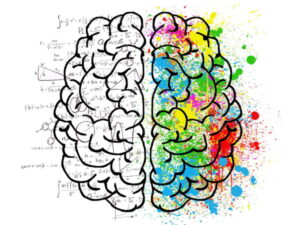Lifestyle changes to improve and prevent symptoms of depression and anxiety.
Lifestyle changes can help people manage anxiety and depression, and take charge of their mental wellbeing.
Some behaviors that are linked to improving or preventing anxiety and depression include addressing sleep issues, connecting with others, eating a nutritious diet and exercising.
Change can be hard, especially for those with anxiety or depression, so it’s important to be kind to yourself.
The best way to care for your mental health is the approach that works best for you. In some cases, professional help may also be needed.
When Roy came to see me for longstanding symptoms of depression and anxiety (they often co-occur), he was hesitant at best. He wanted to feel better, but “getting treatment” didn’t fit with his narrative for what he was “supposed to be doing as a grown man” in his culture. He had a decent, consistent job, but felt his life lacked meaning and joy. He was so hard on himself and avoided others for fear of judgement.
I knew he’d run the other way if I jumped too quickly into a medical referral or diagnosis, so we started with the most human approaches — connecting about what was really going on for him, and exploring readily available lifestyle changes that aligned with his interest, motivation, and values. Within weeks, his spark started to come back, and within months he felt he had a new lease on life. He wasn’t suddenly happy all the time. But he felt a new sense of his capacity to take charge of his mental health.
Will everyone have an outcome like Roy from lifestyle changes? Definitely not — anxiety and depression are complex conditions with tremendous individual variation, varied underlying causes, and varied levels of severity. But can everyone benefit from learning the foundation for how to care for their mind either separately or as an adjunct to professional treatment? I believe so.
The following seven health behaviors are key ones linked to prevention or symptom improvement of anxiety and depression.
While everything on this list is simple, it’s far from easy. Change is hard. And if you currently have depression or anxiety, it can be especially challenging. That’s why one of the key behaviors is being kind to yourself.
If moved to do so, choose one area to work on at a time, perhaps an area you feel especially motivated or confident to address, or an area that feels aligned with your most important values. Then take it one step at a time. The funny thing about change is we often don’t know it’s happening, we just keep rowing in the right direction, and usually after a few, or a few thousand, twists and turns, we look back in awe at how far we’ve come.
1. Sleep
While 10-18% of adults in the U.S. experience chronic sleep issues, this number jumps to 65-90% of those with depression, and over 50% of those with generalized anxiety disorder. Of those with depression, 65% had sleep issues first. Addressing sleep issues can alleviate symptoms of mental health conditions, and given sleep problems are a risk factor for mental health conditions, can also help protect your mental health.
.
2. Self-Compassion
A disposition that tends towards self-critical, or perfectionistic, can be a risk factor for anxiety and depression. This can include feeling like you must be perfect to be accepted, an inability to accept flaws within yourself, intense self-scrutiny, or an unrealistic sense of others’ expectations and your capacity to meet them.
Despite the fear of many who have this characteristic, the antidote to perfectionism isn’t letting it all go, or saying goodbye to standards – it’s self-compassion. According to researcher Kristen Neff, self-compassion has three components: self-kindness vs. self-judgment, common humanity vs. isolation, mindfulness vs. overidentification. How we treat ourselves through the ups and downs of life can have a tremendous impact on health and mental health.
3. Social Connection
From the time we are born, we need social connection in order to thrive.
A recent study lead by researchers at Harvard sought to understand what could most protect us from depression that is within our control. After analyzing over 100 potential factors, they found that social connection was by far the most important protective factor.
It’s been a lonely year for many. And many are anxious at the prospect of going back to normal. But connection doesn’t mean a big party or bustling office. It can be confiding in one trusted person about how you’re really doing, listening to how someone else is really doing, giving a meaningful thank you, or having a (safe) visit with any family member or friend. If this feels out of reach, try making a short list of people who at any point have given you a sense of belonging. Other studies have shown that just calling positive relationships to mind can have a positive impact on our capacity to tolerate stress.
4. Exercise
Exercise can be important for preventing depression since having a sedentary lifestyle is a risk factor. One study found that 15 minutes a day of vigorous exercise significantly prevents depression. Another study found that 12 weeks of vigorous exercise at 30 minutes, three to five times per week reduced symptoms by 47%.
For co-existing anxiety and depression, a 2020 study led by James Blumenthal, professor of psychiatry at Duke University, exercise was most effective when combined with medication. Otherwise, a high level of anxiety seemed to dull the effects of exercise for reducing depression.
What about anxiety? Research shows exercise can be a positive distraction, that higher levels of activity can protect against symptoms, and that a single session of exercise can have immediate benefits for reducing stress and worry.
5. Nutrition
A lot has been written on the link between food and mood. We have so many neurons and neurotransmitters in our gut that it’s been dubbed “the second brain.” In fact, 95% of the serotonin we produce is from neurotransmitters in the gut. Traditional diets (like the Mediterranean diet) high in vegetables, whole grains, and good-for-your-brain fats are associated with a 25-35% reduced risk of depression compared to the typical western diet which is higher in sugar, processed foods, and dairy.
Although we typically think of positive nutrition as a prevention habit, a 2020 study found significant reductions in depression symptoms, as well as co-occurring anxiety symptoms, after a 12-week intervention that offered nutritionist support to follow a modified Mediterranean diet. These findings suggest that nutrition therapy is a useful adjunct to treatment, and may one day be validated as a treatment in and of itself.
6. Meaning and Purpose
No list could be complete without a nudge to meaning and purpose. If we struggle with mood and negative emotions, it may be especially important to define happiness for ourselves. As Victor Frankl wrote in Man’s Search for Meaning: “For success, like happiness, cannot be pursued; it must ensue.”
It’s hard to control “happy.” It’s much easier to control “meaning.”
7. Mindfulness
Through mindfulness, you can shift how you relate to difficult thoughts and feelings. Many find that with continued practice, they still have difficult thoughts and feelings but they can observe them with a little more distance and a little less believing them as fact. One study found that after eight weeks of mindfulness practice, practitioners showed increased grey matter concentration, which is associated with emotional regulation, among other benefits. Mindfulness is not a cure-all, but it can be quite a helpful tool for shifting how you experience challenges.
Which of these habits is most effective? Well, that really depends on what works for you! If someone tells you mindfulness is “the only way,” let that notion drift away like leaves on a river. As a 2021 review from the University of Cambridge found, for instance, mindfulness is helpful in most clinical settings but not necessarily more so than other wellness approaches, like exercise.
So really the best approach is: Get whatever support is in reach (for clinical levels of anxiety and depression, professional therapy and medical evaluation is the gold standard) and care for your mind based on what works for you.
Author
Sarah Greenberg





